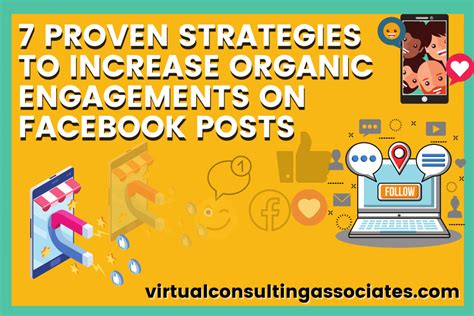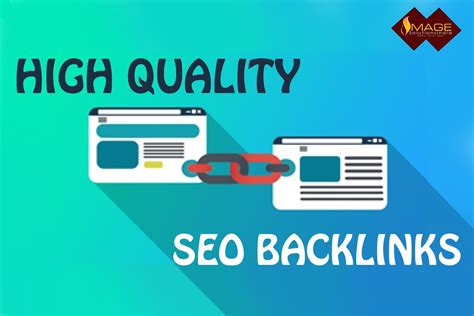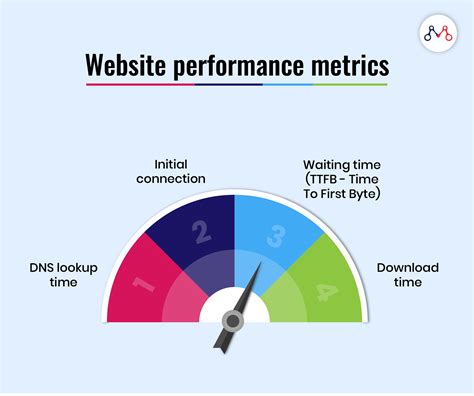Are you looking to attract more visitors to your website? Are you tired of relying on paid advertising to drive traffic? In today's digital age, it is essential for businesses to explore effective techniques that can boost their online visibility without spending a fortune. Increasing organic website traffic is not only cost-efficient but also sustainable in generating long-term success. This article will delve into seven proven strategies that can heighten your website's organic traffic and ultimately lead to increased brand exposure and higher conversion rates.
1. Optimize Your On-Page SEO
One of the fundamental ways to enhance your website's organic traffic is by optimizing your on-page SEO. This involves strategically incorporating relevant keywords, meta tags, and meta descriptions into your web pages. By aligning your content with the search intent of your target audience, search engines will be more likely to rank your website higher in organic search results.
2. Create High-Quality Content
The saying "content is king" holds true when it comes to driving organic traffic. Crafting high-quality content that is informative, engaging, and valuable to your audience will not only attract visitors but also encourage them to share your content and return for more. Creating a content calendar and regularly publishing fresh and unique articles, blog posts, and videos can significantly enhance your website's visibility.
3. Utilize Social Media to Your Advantage
Social media platforms have become powerful tools for businesses to increase their online presence. Building a strong social media presence can significantly boost your website's organic traffic. Utilize platforms such as Facebook, Twitter, and Instagram to share your content, engage with your audience, and drive traffic back to your website. Implementing social sharing buttons on your website can also encourage visitors to share your content with their own networks.
4. Collaborate with Influencers
Partnering with influencers in your niche can be a game-changer when it comes to growing your website's organic traffic. Influencers have a loyal following that trusts their recommendations. By collaborating with influencers through guest posts, product reviews, or sponsored content, you can tap into their audience and drive targeted traffic to your website.
5. Implement Backlink Building Strategies
Backlinks, or inbound links from other websites, play a crucial role in improving your website's organic search rankings. Developing a comprehensive backlink building strategy that includes reaching out to relevant websites, guest posting on authoritative sites, and creating compelling content that naturally attracts links can significantly boost your website's visibility and organic traffic.
6. Optimize for Mobile Devices
With the increasing use of smartphones and tablets, optimizing your website for mobile devices is no longer an option but a necessity. Ensure that your website is mobile-friendly, loads quickly, and provides a seamless user experience on all devices. Search engines prioritize mobile-friendly websites in their rankings, which can lead to higher organic traffic.
7. Monitor and Analyze Your Website Data
Regularly monitoring and analyzing your website data is essential for optimizing your organic traffic strategies. Utilize tools such as Google Analytics to track key metrics like organic traffic, bounce rate, and conversion rate. By understanding your audience's behavior and preferences, you can fine-tune your strategies, identify areas for improvement, and continuously enhance your website's organic traffic.
7 Proven Techniques to Amplify the Organic Flow of Visitors to Your Site

In this section, we will explore seven proven techniques that can significantly enhance the natural influx of visitors to your online platform. By implementing these strategies, you can increase the visibility of your website, attract a wider audience, and ultimately achieve higher engagement and conversions.
| Technique | Description |
|---|---|
| 1. Enhance Content Quality | Create compelling and valuable content that resonates with your target audience. Craft articles, blog posts, and web pages that are informative, engaging, and shareable. |
| 2. Optimize Keywords | Conduct thorough keyword research to identify the most relevant and high-performing keywords in your niche. Incorporate these keywords strategically throughout your website to improve its ranking in search engine results. |
| 3. Generate Backlinks | Build a network of quality backlinks from reputable websites and influencers in your industry. These backlinks provide credibility and authority to your website, improving its organic visibility. |
| 4. Leverage Social Media | Utilize popular social media platforms to promote your website and share your content. Engage with your audience, foster discussions, and encourage social sharing to increase your website's exposure. |
| 5. Optimize for Mobile | Ensure that your website is mobile-friendly and responsive. With the growing number of mobile users, optimizing your site for mobile devices improves user experience and boosts organic traffic. |
| 6. Utilize On-Page SEO | Implement on-page SEO techniques such as meta tags, header tags, and alt tags. This helps search engines understand the content on your website and improves its ranking in organic search results. |
| 7. Foster Guest Blogging | Collaborate with industry experts and influencers to create guest blog posts. Publishing these posts on reputable websites not only enhances your website's visibility but also establishes you as an authority in your field. |
Boosting Your Site's Visibility: Optimize Your Online Presence
Enhancing your web platform's visibility is vital to attracting a wider audience and increasing user engagement. One of the most effective methods to achieve this goal is through optimizing your website for search engines.
When people search for relevant information or services, search engines like Google, Bing, and Yahoo play a critical role in directing them to the most appropriate websites. By implementing search engine optimization (SEO) techniques, you can enhance your website's visibility in the search engine results pages (SERPs), thus attracting more organic traffic.
Begin by conducting thorough keyword research to identify the optimal words and phrases that your target audience uses while searching for content related to your niche. Incorporate these strategic keywords naturally throughout your website's content, including your titles, headers, meta descriptions, and alt text for images. This will aid search engines in understanding the relevance of your content to specific search queries, resulting in higher rankings.
In addition to keywords, focus on optimizing your site's loading speed, mobile responsiveness, and overall user experience. Ensuring that your web pages load quickly and are mobile-friendly not only improves your SEO rankings but also provides a seamless browsing experience for your visitors.
Another crucial aspect of search engine optimization is building high-quality inbound links. Encourage reputable websites in your industry to link back to your content, as these inbound links serve as a vote of confidence to search engines, improving your website's authority and credibility.
Furthermore, regularly publishing fresh, informative, and engaging content on your website is essential to maintain relevance and attract returning visitors. By consistently providing valuable content, you increase the chances of other websites linking to your articles, further bolstering your search engine rankings.
Implementing these optimization strategies will help increase your website's visibility in search engine results and drive organic traffic, ultimately leading to greater online success and audience reach.
Create Compelling, Relevant Content that Drives Engagement

One of the most crucial aspects of boosting your website's visibility and attracting organic traffic is to consistently produce high-quality, informative content that resonates with your target audience. By crafting compelling articles, blog posts, and other forms of content, you can establish yourself as an authority in your industry and captivate your readers' attention.
When creating content, it is essential to ensure that it is relevant to your audience's interests and needs. By conducting thorough research and understanding your target market's pain points, you can address their specific concerns and provide valuable solutions. This way, you will not only attract more visitors to your website but also retain their attention and generate higher levels of engagement.
In addition to relevance, your content should be crafted with a focus on quality. By investing time and effort into producing well-written, error-free articles, you can establish credibility and build trust with your readers. Furthermore, incorporating visually appealing elements such as relevant images, infographics, or videos can enhance the overall user experience and make your content more shareable.
Another key aspect of creating high-quality content is incorporating keyword research. By identifying and incorporating relevant keywords that are frequently searched by your target audience, you can optimize your content for search engines. This, in turn, improves your chances of organic ranking and increases the likelihood of your website being discovered by users actively seeking information related to your industry or niche.
Lastly, don't forget to promote your content through various channels, such as social media platforms, email newsletters, and guest blogging opportunities. By amplifying the reach of your content, you can attract a wider audience and increase the chances of driving organic traffic to your website.
Optimize Your Content with Long-Tail Keywords
When it comes to enhancing the visibility and reach of your website, utilizing long-tail keywords can prove to be a powerful strategy. These specific keyword phrases, consisting of three or more words, can attract a highly targeted audience to your website.
By incorporating long-tail keywords into your content, you can increase the chances of your website appearing in relevant search engine results. This can lead to higher organic traffic as users are more likely to click on your website when their search intent aligns with your content.
- Identify relevant long-tail keywords: Research and identify long-tail keywords that are highly related to your niche and target audience. Consider the specific topics, questions, or problems that your target audience may search for.
- Create quality content around long-tail keywords: Develop valuable and informative content that incorporates your chosen long-tail keywords naturally. Ensure that the keywords are integrated seamlessly within the content and provide relevant information.
- Use long-tail keywords strategically: Incorporate long-tail keywords in various elements of your website, including page titles, meta descriptions, headings, and throughout the body of your content. However, avoid keyword stuffing, as it can harm your website's ranking.
- Monitor your keyword performance: Regularly track the performance of your chosen long-tail keywords. Analyze the organic traffic and ranking improvements resulting from their implementation. Adjust your keyword strategy based on the data to optimize results.
- Stay up-to-date with keyword trends: Continuously research and stay updated with the latest trends and changes in your industry. This will help you identify new long-tail keywords that can further boost your website's organic traffic.
- Optimize your website structure for long-tail keywords: Ensure your website's structure and navigation are optimized to support the targeting and inclusion of long-tail keywords. This includes organizing your content into relevant categories and having user-friendly URLs.
- Monitor and analyze competitor keywords: Keep an eye on your competitors and analyze their keyword strategy. Identify the long-tail keywords they are ranking for and evaluate their performance. This can provide insights and inspiration for your own keyword optimization efforts.
By implementing these effective long-tail keyword strategies, you can significantly enhance the visibility of your website, attract a relevant audience, and ultimately increase your organic traffic. Always remember to offer valuable and high-quality content that aligns with your audience's search intent, ensuring a positive user experience.
Powerful Techniques for Building High-Quality Backlinks

In today's competitive online landscape, establishing a strong presence and driving targeted traffic to your website is paramount for success. One highly effective approach to achieve this is by building high-quality backlinks. By strategically and consistently acquiring backlinks from authoritative websites, you can enhance your site's credibility, improve its search engine ranking, and ultimately attract more organic traffic.
1. Implement a Guest Blogging Strategy
Guest blogging is an excellent way to build backlinks from relevant and authoritative websites in your industry. By creating valuable and informative content and submitting it to reputable blogs in your niche, you can gain exposure to new audiences and earn valuable backlinks to your site.
2. Leverage Influencer Marketing
Collaborating with influencers in your industry can provide a powerful boost to your backlink building efforts. By engaging with influencers through content partnerships, social media mentions, or even interviews, you can attract attention from their followers and potentially gain high-quality backlinks from their websites.
3. Create Linkable Assets
Developing linkable assets, such as comprehensive guides, infographics, or research studies, can significantly increase the chances of attracting backlinks. By offering valuable resources that others in your industry find useful and would want to reference, you can naturally earn high-quality backlinks to your website.
4. Engage in Broken Link Building
Identifying broken links on authoritative websites in your industry and offering your own relevant content as a replacement is an effective strategy for building backlinks. By reaching out to webmasters and presenting your content as a valuable alternative, you can potentially secure backlinks while helping them fix broken links on their sites.
5. Participate in Online Communities
Being active in online communities, such as forums or social media groups, can provide opportunities to build backlinks. By actively participating and contributing valuable insights and information, you can establish yourself as an authority in your field and attract backlinks from community members who find value in your contributions.
6. Utilize Resource Link Building
Resource link building involves discovering relevant resource pages on authoritative websites and requesting them to include your website as a valuable resource. By offering unique and high-quality content or tools, you can increase the likelihood of securing backlinks from these resource pages.
7. Monitor Your Competitors
Keeping an eye on your competitors' backlink profiles can provide valuable insights and inspire new ideas for acquiring backlinks. By analyzing the linking strategies of your competitors' websites, you can identify potential opportunities and implement similar tactics to build high-quality backlinks for your own site.
Remember, building high-quality backlinks is a long-term process that requires patience and consistent effort. By implementing these powerful techniques and continually assessing and adjusting your backlink building strategies, you can gradually boost your website's authority and attract a steady stream of organic traffic.
Leverage the Power of Social Media Platforms
Social media platforms have become invaluable tools for driving targeted traffic to your website and increasing your online presence. By harnessing the power of social media, you can effectively boost your website's visibility, connect with your target audience, and enhance brand awareness.
Engaging with social media platforms allows you to tap into a vast network of potential customers and influencers. These platforms provide a unique opportunity to showcase your products or services, share valuable content, and interact with your audience in real-time.
One of the key benefits of leveraging social media is its ability to generate organic traffic. By creating compelling and shareable content, you can encourage your followers to spread the word about your website, thereby reaching a wider audience and increasing your website's visibility on search engines.
Furthermore, utilizing social media platforms allows you to personalize your interactions with your audience. By understanding their preferences and interests, you can tailor your content and promotions to effectively cater to their needs, making your website more appealing and relevant to them.
In addition to promoting your website, social media platforms also provide powerful analytics tools that can help you track and measure the success of your campaigns. These insights enable you to optimize your strategies, identify what resonates with your audience, and make data-driven decisions to continuously improve the performance of your website.
By establishing a strong social media presence, consistently posting engaging content, and fostering meaningful interactions with your audience, you can enhance your website's visibility, drive organic traffic, and ultimately achieve your online goals.
Enhance User Experience and Optimize Site Performance

Improving user experience and optimizing site performance are crucial factors in driving organic traffic to your website. By focusing on creating a seamless and enjoyable browsing experience for your visitors, you can enhance their engagement and increase the likelihood of repeat visits and conversions. Additionally, optimizing your site's performance ensures faster loading times, which can positively impact your search engine rankings. In this section, we will explore key strategies to improve user experience and optimize the performance of your website.
1. Streamline Navigation:
One of the most important aspects of improving user experience is ensuring that your website's navigation is intuitive and user-friendly. Consider organizing your content into logical categories and using clear and descriptive navigation labels. Implementing a search function can also make it easier for visitors to find specific information on your site.
2. Enhance Website Design:
An appealing and visually pleasing website design can significantly improve user experience. Use high-quality images and graphics to engage visitors and make your content more compelling. Incorporate a clean and modern layout that is easy to navigate. Consider using white space effectively to reduce clutter and allow content to breathe.
3. Optimize Page Loading Speed:
Website speed plays a crucial role in user experience. Slow-loading pages can lead to high bounce rates and decreased user satisfaction. Optimize your website's loading speed by minimizing the file size of images, utilizing caching mechanisms, and reducing the number of HTTP requests. Regularly monitor your site's performance and make necessary improvements to keep it fast and responsive.
4. Ensure Mobile Responsiveness:
In the era of mobile browsing, it's essential to ensure that your website is mobile-responsive. A responsive design adapts to different screen sizes, making it easy for users to navigate and consume content on various devices. Test your website on different devices and use responsive design techniques to improve the mobile user experience.
5. Improve Content Readability and Accessibility:
Make your content easy to read and digest by using appropriate font sizes, colors, and formatting. Consider using headings and subheadings to break down long paragraphs and improve scanability. Ensure that your website is accessible to users with disabilities by following best practices, such as providing alternative text for images and using descriptive link text.
6. Implement User-Friendly Forms:
If your website requires user input through forms, make sure they are user-friendly and straightforward. Reduce the number of required fields and use clear instructions to help users complete the forms successfully. Consider implementing autofill capabilities to streamline the process and enhance user convenience.
7. Regularly Test and Optimize:
Continuously monitor and test different aspects of your website to identify areas for improvement. Use analytics tools to gather insights on user behavior, engagement, and conversions. Based on the data, make data-driven decisions to optimize your site's user experience and performance continually.
By implementing these strategies, you can enhance user experience and optimize the performance of your website, resulting in increased organic traffic and improved conversions. Remember that user satisfaction is a key factor in achieving sustainable growth and building a loyal audience for your brand.
FAQ
What are some effective strategies to increase organic website traffic?
There are several effective strategies to increase organic website traffic. Some of these include optimizing your website for search engines, creating high-quality and relevant content, utilizing social media platforms, building backlinks, improving website speed and user experience, using targeted keywords, and guest blogging.
How can I optimize my website for search engines?
To optimize your website for search engines, you can start by conducting keyword research and adding these keywords naturally throughout your website's content. You should also optimize your meta tags, such as title tags and meta descriptions, and make sure your website is mobile-friendly. Additionally, improving your website's loading speed, using descriptive URLs, and creating an XML sitemap can also help with search engine optimization.
Why is high-quality and relevant content important for increasing organic website traffic?
High-quality and relevant content is important for increasing organic website traffic because it attracts and engages users. When you provide valuable content that solves their problems or answers their questions, they are more likely to visit your website and share your content with others. Moreover, search engines like Google prioritize pages with quality content, which can improve your website's ranking and visibility in search results.
What are some social media platforms that can help increase organic website traffic?
There are several social media platforms that can help increase organic website traffic. These include Facebook, Twitter, Instagram, LinkedIn, and Pinterest. By sharing your website's content on these platforms and actively engaging with your target audience, you can drive traffic to your website. It's important to choose platforms that are most relevant to your target audience and industry for better results.



